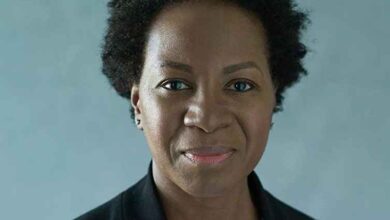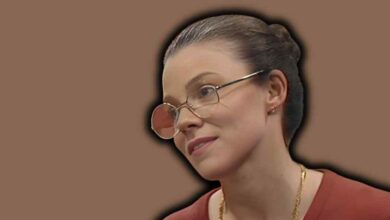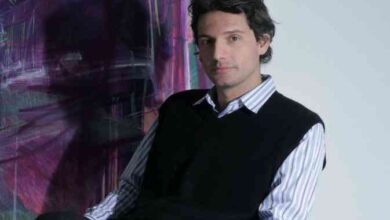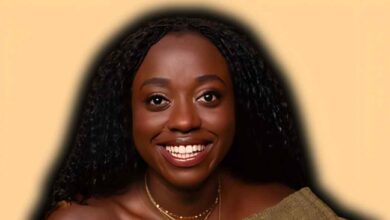Joanne Evans: The Rising Mezzo-Soprano Transforming Opera’s Future
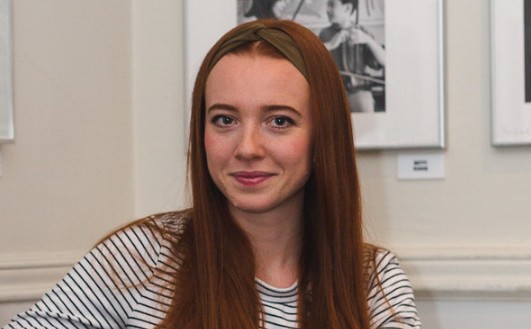
Joanne Evans is one of the most compelling mezzo-sopranos emerging from the United Kingdom, a young artist whose artistry, discipline, and creative vision are quickly establishing her as an international presence. Born in London and nurtured through a rich combination of classical training and practical stage experience, she embodies the new generation of opera singers who not only excel in traditional repertoire but also embrace contemporary projects and interdisciplinary collaborations. Her journey is a striking example of how talent, resilience, and innovation converge to create a musician capable of standing out on the global stage.
Early Life and Musical Beginnings
From her earliest years, Joanne Evans displayed an affinity for music and performance. Growing up in London exposed her to a vibrant cultural environment, where opera houses, theatres, and concert halls offered constant inspiration. Unlike many who find their way into opera through family tradition, Joanne’s path was one of discovery. She began with musical theatre, choral singing, and stage performance, gradually realising that her voice possessed the richness and flexibility ideal for operatic training. This early exposure to varied forms of performance gave her a foundation in communication and stagecraft that continues to inform her opera career today.
Education and Professional Training
One of the defining aspects of Joanne Evans’ career is her pursuit of rigorous and diverse training opportunities. She studied at Bard College Conservatory of Music, an institution known for blending academic depth with musical excellence. Her curiosity and ambition then took her to several prestigious residencies and young artist programmes. These included the Merola Opera Program in San Francisco, where she refined her technique while absorbing the American operatic tradition, and the Académie of the Festival d’Aix-en-Provence, where she received the Le Prix des Amis, a recognition of her vocal mastery and artistry.
Other training highlights include her time as a fellow at the Ravinia Steans Music Institute, as well as experiences with the Britten Pears Young Artist Programme and the Music Academy of the West. These institutions are known for producing singers of exceptional calibre, and Joanne Evans’ presence there confirmed her as an artist to watch. Each residency not only sharpened her vocal ability but also immersed her in intensive collaborations with conductors, coaches, and stage directors.
The Mezzo-Soprano Voice and Its Demands
As a mezzo-soprano, Joanne Evans inhabits one of opera’s most intriguing voice types. Mezzo roles often carry emotional complexity: they can be fiery and commanding, as in the case of Carmen, or deeply compassionate, such as the character of Octavian in Der Rosenkavalier. They also frequently represent confidantes, rivals, and noble heroines. For Evans, this range provides a platform to showcase her earthy lower register, her velvety middle voice, and her expressive acting. The demands placed upon mezzos require both stamina and flexibility, qualities that she demonstrates with consistency across performances.
Operatic Repertoire and Stage Roles
Joanne Evans’ repertoire demonstrates both versatility and ambition. She has taken on roles such as Maddalena in Rigoletto, Lucienne in Die Tote Stadt, and Olga in Eugene Onegin. Each role reveals different aspects of her artistry: from the sultry and dramatic to the playful and lyrical. Critics have praised her Olga for its warmth and authenticity, noting her ability to command attention while blending seamlessly into ensemble scenes.
Upcoming performances include Dorabella in Mozart’s Così fan tutte and Flora in Verdi’s La traviata. These roles highlight her growing presence on international stages and suggest a future filled with increasingly demanding repertoire. Her trajectory shows a careful balance between taking on roles that suit her current stage of vocal development while preparing for the heavier parts that will define her mature career.
Recognition and Awards
Recognition has been swift for Joanne Evans, reflecting both her talent and her dedication. She won the Marilyn Horne Song Competition during her time at Music Academy of the West, a prize that acknowledges both technical skill and interpretive insight in art song performance. She also took first place in the Handel Aria Competition, a particularly meaningful victory for a singer whose voice thrives in the colour and expressiveness of Baroque music.
Her success extends to competitions organised by the Metropolitan Opera, where she was a Boston District winner. Further grants and awards from the Career Bridges programme, the Gerda Lissner Foundation, and the Premiere Opera Foundation have provided both financial support and artistic validation, ensuring that she can continue to grow without the limitations that often challenge young singers.
Contemporary Work and New Projects
While rooted in tradition, Joanne Evans is also deeply engaged in contemporary work. She co-founded Loam Music with conductor Micah Gleason, an initiative dedicated to semi-immersive storytelling and innovative opera projects. Their work Daughter of God, a one-woman chamber opera, reflects Evans’ commitment to expanding the possibilities of her art form. By stepping into the creative process not only as performer but also as co-creator, she aligns with a broader movement in classical music that values innovation and inclusivity.
Beyond Opera: A Broader Stage Career
Joanne Evans’ journey into opera was preceded by several years in the world of musical theatre and popular performance. Between 2014 and 2019, she acted in productions such as Laura Wade’s Posh, and performed with Gobsmacked, a high-energy a cappella group. This experience enriched her sense of stagecraft and allowed her to perform in venues such as the Kennedy Center and Edinburgh Fringe Festival. She even recorded music for the BBC’s Pitch Battle. These diverse experiences not only broadened her skills but also distinguish her from singers whose careers remain purely within opera.
Artistic Philosophy and Personal Style
What makes Joanne Evans particularly exciting as an artist is not only her vocal skill but also her interpretive intelligence. She brings a deep emotional connection to her roles, approaching each character as a psychological study as much as a musical one. Her training in both dramatic and vocal arts allows her to inhabit roles with authenticity, presenting fully realised characters rather than vocal displays alone.
Her voice is often described as rich, grounded, and expressive, capable of carrying both fiery passion and lyrical delicacy. This dual quality enables her to move fluidly between lighter roles and darker, more dramatic parts, positioning her as a mezzo with a promisingly wide future repertoire.
The Role of British Opera Singers on the Global Stage
British singers have long played an important role in international opera, and Joanne Evans is continuing that tradition. Opera houses around the world prize the discipline and clarity of UK-trained singers, and Evans embodies these qualities while also bringing her own creativity and individuality. Her work in European and American opera houses strengthens cultural exchange and enhances the visibility of British artistry abroad.
Contribution to the Future of Opera
The future of opera lies in its ability to both respect tradition and innovate for new generations. Joanne Evans represents precisely this balance. Through her performances in canonical works by Verdi, Mozart, and Tchaikovsky, she ensures the preservation of operatic heritage. Through projects like Daughter of God and her collaborative approach with Loam Music, she pushes boundaries and explores new modes of storytelling. For younger audiences, her career serves as an inspiring example of how opera can remain relevant and exciting.
Critical Reception and Audience Response
Reviews of Joanne Evans’ performances frequently emphasise her stage presence and musical intelligence. Critics highlight her “earthy richness” of tone and her ability to capture emotional nuance. Audiences, meanwhile, are drawn to her charisma and the authenticity with which she delivers each role. Unlike some singers whose technical precision can feel detached, Evans communicates with warmth and sincerity, bridging the gap between classical tradition and modern expectation.
Looking Ahead: Future Engagements
Looking ahead, Joanne Evans is set to expand her presence further across Europe and the United States. Engagements with Opera San José, Annapolis Opera, and Berkshire Opera Festival will consolidate her standing in the American scene, while collaborations with the Mahler Chamber Orchestra and the Aldeburgh Festival highlight her growing European footprint. These opportunities suggest a career that will only deepen in influence and visibility over the coming years.
Conclusion
Joanne Evans is much more than a promising voice: she is an artist of vision, versatility, and resilience. From her beginnings in London through her training at world-renowned academies, from traditional opera stages to experimental projects, she embodies the richness of contemporary opera. Her story demonstrates how dedication to craft, openness to innovation, and a genuine love for storytelling can propel a singer to international acclaim.
As she steps into increasingly significant roles and continues to create new work, Joanne Evans is not only shaping her own career but also contributing to the future of opera itself. She stands as an inspiration for aspiring singers and a powerful reminder to audiences that opera remains one of the most profound art forms in existence.
